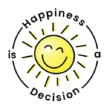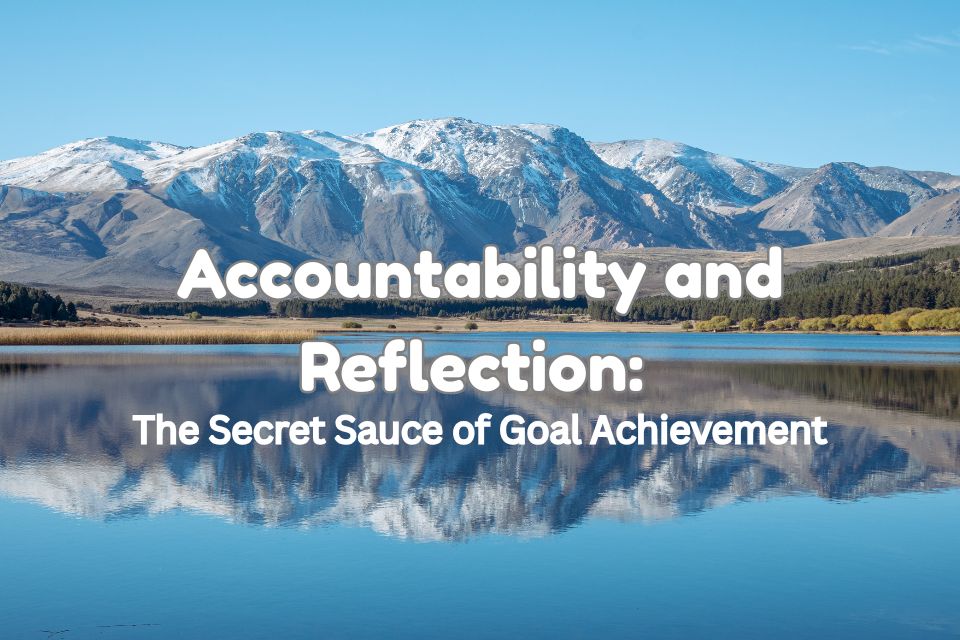Why Motivation Isn’t Enough
We all start goals feeling fired up. Motivation is high, energy is strong, and the finish line feels possible. But fast forward a few weeks and reality sets in — motivation fades, life gets busy, and suddenly the goal feels harder to reach.
This is why relying on motivation alone doesn’t work. What does work is adding two simple ingredients: accountability and reflection. Accountability keeps you moving when your willpower wobbles. Reflection keeps you aligned so you don’t give up when things get messy. Together, they’re the secret sauce that makes goals stick.
Recently I found myself struggling to stay motivated with my own health goals. I knew what I wanted to do, but the drive just wasn’t there. Instead of pushing on alone, I booked a session with a wellness coach friend. Talking it through helped me break through the resistance I was feeling, and her support re-energised me. That accountability gave me the boost I needed to get back on track.
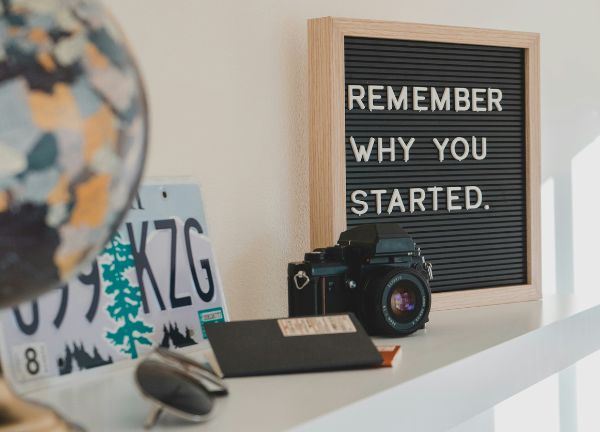
Why Accountability Matters
Accountability is about having someone (or something) outside of yourself that helps keep you on track. It’s the difference between promising yourself you’ll go for a walk and promising a friend you’ll meet them at 7am for that walk.
How Accountability Works
- External Pressure: You’re more likely to follow through when someone else knows about your goal.
- Encouragement: Accountability partners can cheer you on when you doubt yourself.
- Consistency: Regular check-ins create momentum, even when motivation dips.
Types of Accountability
- One-to-One: An accountability partner, coach, or mentor.
- Group Accountability: Classes, online communities, mastermind groups.
- Public Accountability: Sharing your goals on social media, blogs, or YouTube.
- Self-Tracking: Habit trackers, apps, or journals that provide visible progress.
One of the best examples of accountability in my own life was when I committed to meeting a friend for a 6am walk. On the mornings I didn’t feel like getting up, I knew she’d be waiting for me — and I couldn’t let her down. That accountability got me out the door when sheer motivation never would have.
Why Reflection Matters
Accountability keeps you moving. Reflection keeps you aligned. Reflection is the process of stopping to ask: How’s it going? What’s working? What isn’t?
Without reflection, you risk either pushing blindly toward a goal that no longer matters, or giving up when things get tough because you mistake a setback for failure.
How Reflection Works
- Turns Setbacks Into Feedback: Instead of labelling a slip-up as failure, you learn from it.
- Builds Awareness of Progress: Even small wins add up, and reflecting helps you see them.
- Realigns Goals: Life changes. Reflection helps you check if your goals still match your values.
Reflection shows up for me most clearly in my weekly goal review practice. At the end of each week, I go through each of my goals and write down what I’ve done so far. Then I note what I could do in the following week. Finally, I commit to one or two specific actions that I will do.
This simple structure keeps me moving forward. Even when progress feels slow, looking back reminds me that I’ve already achieved more than I thought. And setting just one or two non-negotiable actions for the week ahead keeps me focused and consistent.
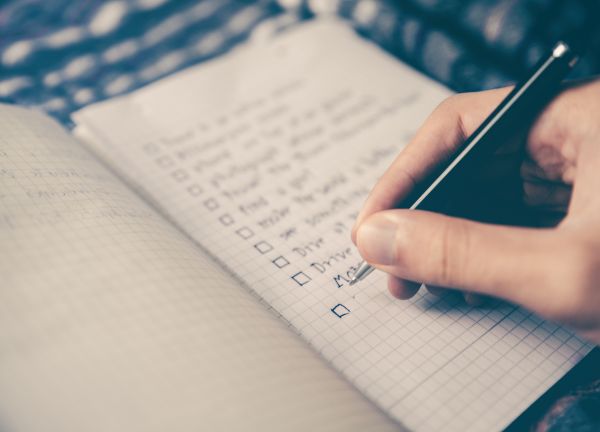
Simple Ways to Build Accountability
- Tell Someone Your Goal
Even just telling a trusted friend increases your likelihood of following through. - Join a Group
Find a class, online community, or coaching group where people share their progress. The shared energy keeps you going. - Work with a Coach or Mentor
A coach provides structure, tools, and honest feedback — plus they’ll hold you to your commitments. - Use Trackers or Apps
Visual progress (a streak on a calendar, boxes ticked off, or a habit app) is motivating. - Make It Public
If you’re brave, share your goal on social media or with your audience. The sense that “people are watching” adds accountability.
Telling someone my goal seems to work best for me. I don’t want to have to report back that I didn’t succeed.
Reflection Prompts That Keep You On Track
At the end of each week or month, ask yourself:
- What worked well?
- What didn’t go as planned?
- What obstacles came up — and how can I work around them?
- What’s the next small step I can take?
- Does this goal still align with my values?
This process might be even simpler like the process I use each week. I list what I’ve done, what I could do and then a few things that I will do. This works well for me.
Common Mistakes to Avoid
- Choosing the Wrong Accountability Partner
Pick someone who supports you, not someone who lets you off the hook or makes you feel judged. - Over-Focusing on Failures in Reflection
Reflection isn’t about beating yourself up. It’s about learning. If you only see what went wrong, you’ll lose momentum. - Forgetting to Celebrate Wins
Celebrating progress is fuel. Without it, goals feel like endless work.
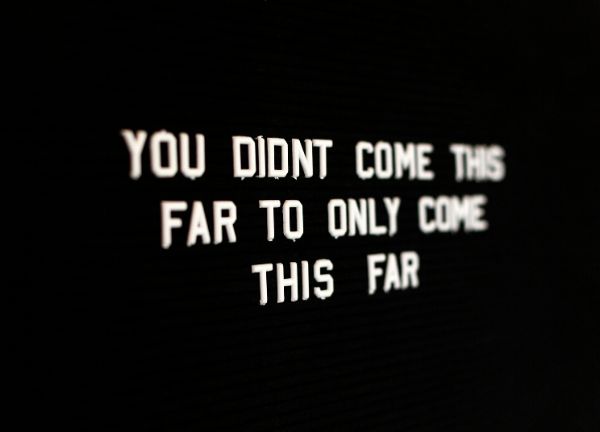
Accountability + Reflection in Action
Here’s how it works when you combine both:
Step 1: Share your goal with an accountability partner.
Step 2: Break it down into small steps.
Step 3: Reflect at regular intervals to check what’s working.
Step 4: Adjust your actions based on reflection.
Step 5: Celebrate milestones along the way.
➡️ Example: Let’s say your goal is to meditate for 20 minutes every day. Accountability could be telling a friend who checks in with you weekly. Reflection could be noticing that 20 minutes feels too long at first, so you adjust to 10 minutes. Instead of giving up, you tweak and keep going. Over time, both practices together keep you consistent.
Final Thoughts: The Secret Sauce
Motivation is fickle. Accountability and reflection are what keep goals alive long after the initial excitement wears off.
Accountability gives you structure and support. Reflection gives you alignment and insight. Together, they turn stop-start goals into sustainable progress.
So the next time you set a big goal, don’t just rely on your willpower. Ask: Who will keep me accountable? How will I reflect on my progress?
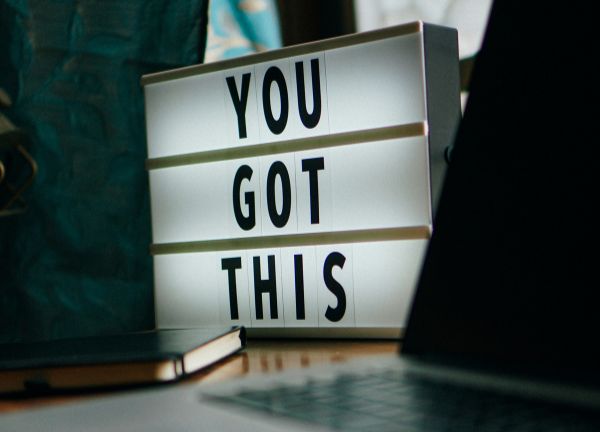
📖 Want more? Read these other post about successful goal setting:
Goal Setting with Purpose
How to Find Your Core Values (and Why They Matter for Goal Setting)
SMART vs HEART Goals: Which Framework Works Best for You?
Breaking Big Goals Into Small Steps: The Key to Actually Achieving Them
📥 Download the free Purposeful Goal Setting Worksheet to build accountability and reflection into your goals today.
